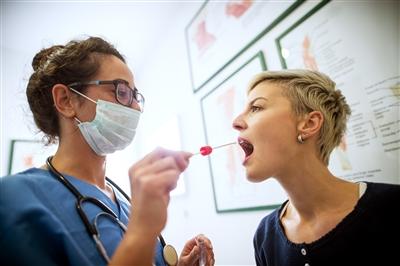The truth behind women’s heart disease myths

In recent years more information about heart disease in women is available but many women are still confused about some of the key facts about their heart health.
“Many women who suffer a cardiac event or who have heart disease in their family are surprised by it or say ‘I didn’t think this could happen to me’,” says Leslie Poor, MD, Lankenau Heart Institute cardiologist at Bryn Mawr Hospital and co-director of the Women’s Heart Initiative. “Despite the information available, there are many women who are still surprised by how prevalent heart disease is and how many women it affects. Just 60 percent of women are aware that heart disease is their leading cause of death.”
Dr. Poor explores some of the most common myths associated with women’s heart disease, and reveals the truth behind them.
Heart disease myth: All people having a heart attack have chest pain
It’s true that chest pain is the most common symptom of a heart attack. However, many women having a heart attack have more subtle symptoms. The symptoms include shortness of breath, nausea, extreme fatigue or jaw, back or arm pain. If you’re experiencing these symptoms, don’t delay getting care. Call 911 immediately.
Heart disease myth: Heart disease is for the over-60 crowd
Just like many people are quick to dismiss heart disease as a ‘man’s disease,’ they are just as likely to dismiss it as something that only affects people in their sixties and above. But the statistics surrounding heart disease diagnoses tell a different story. “Heart disease is the third-leading cause of death for women ages 35–44 and the second leading cause of death for women ages 45–54,” says Dr. Poor. “This is something that is affecting an increasing number of young women every year.”
That means it’s never too early to take charge of your heart health. The decisions you make in your twenties and thirties can have a big impact on your health later in life.

Heart disease myth: Most women know their heart disease risks
Although increased awareness about women’s heart disease has led more women to take control of their risk factors and recognize the symptoms of a cardiac event sooner, there are still many women who don’t realize that they have additional heart disease risks.
“There are many heart disease risk factors that are unique to women, like treatment for breast cancer, pre-eclampsia, gestational diabetes, menopause and autoimmune disease like rheumatoid arthritis or lupus,” says Dr. Poor. “To provide preventive, personal care it’s important for every member of a woman’s health care team to understand these risk factors.”
If you have a history of one of these health issues or symptoms like heart palpitations, chest discomfort, increased shortness of breath or unexplained fatigue, talk to your primary care provider about whether you should be evaluated by a cardiologist and ask them to help you find a cardiologist who specializes in women’s heart care.
At the Women’s Heart Initiative at the Lankenau Heart Institute, we offer cardiac care for women—by women. Our team of 13 female cardiologists are dedicated to helping women understand their unique heart health risks.
Heart disease myth: There’s nothing I can do about my family’s heart disease risk

Another consideration for women seeking to understand more about their heart disease risk is cardiac genetic testing, offered at Main Line Health. Cardiac genetic testing can tell you more about your inherited (genetic) risk for cardiac issues and help you and your provider build a personalized care plan that’s effective in managing your heart disease risk.
